Hope For Your Child With
Development Delay

Join a global community of parents who have moved from imposed limitations to real potential, from fear to a clear vision of their child’s future.
“Not only do these professionals have explanations and treatment, but they care and it shows. They care for every child who has come and every child that will come in the future, and we (parents) all felt that.”
Mother, USA
You are Not Alone
If You Are Overwhelmed and Do Not Know What to Do Next…
Parents of children who need help are often abandoned left with frightening labels and no answers. Symptomatic labels cause confusion and lead to ineffective symptomatic treatment. You will learn about the root cause of your child’s problem. You will have a team to help you move forward with a program that gets results.
- No more wasting time and resources on treatment that does not work.
- No more uncertainty about the cause of your child’s problems.
- Real support – you will not be alone anymore.
What You Get in the Course
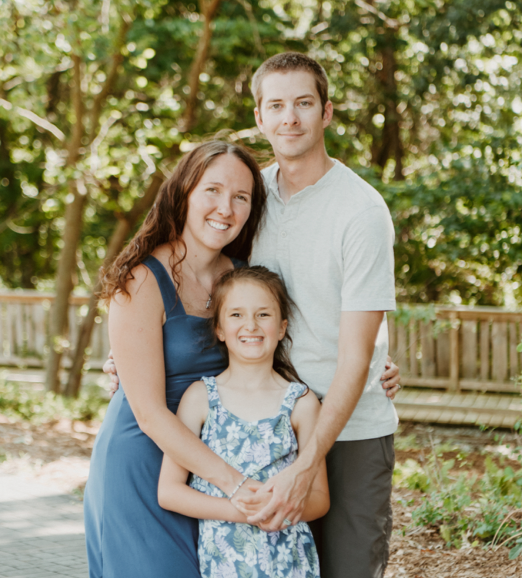
A life-changing course for you, your child, and your family
Presented live online by the Director and the entire clinical staff of The Institutes. The course teaches you how to create a home program rich in stimulation and opportunity for your child and how to embrace your whole family to get it done.
Program Components
Functional Neurological Evaluation
A complete developmental profile of your child showing the neurological age and rate of growth.
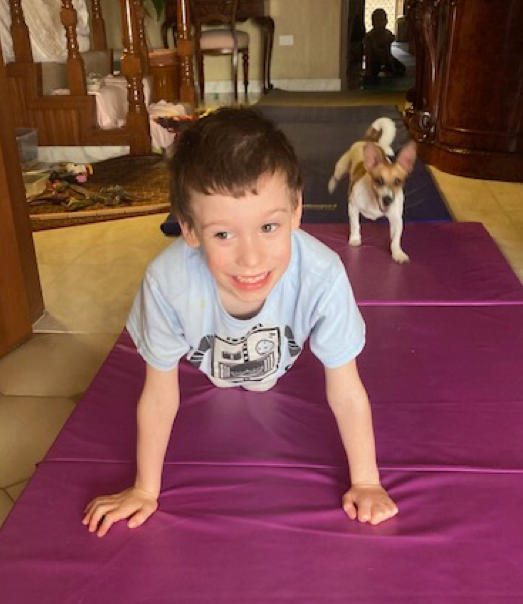
Intellectual
Program
A comprehensive intellectual program that embraces reading and general knowledge with the goal for each child to catch up and surpass the average child.
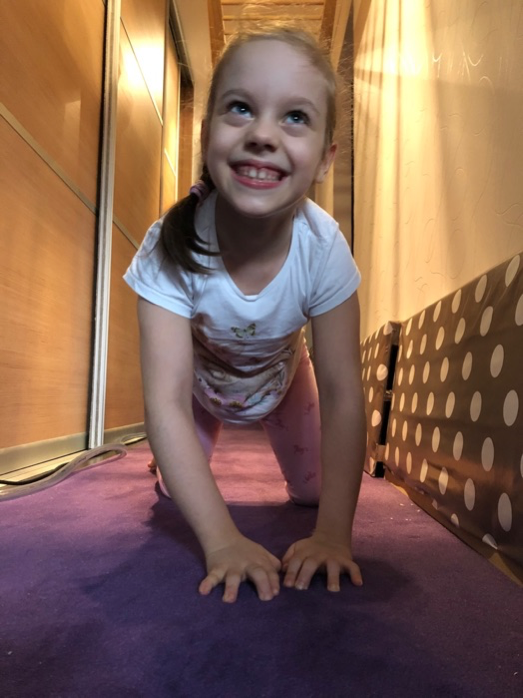
Sensory
Program
A comprehensive sensory stimulation program to address visual, auditory and tactile problems such as neurological blindness, deafness and insensateness as well as milder sensory issues.
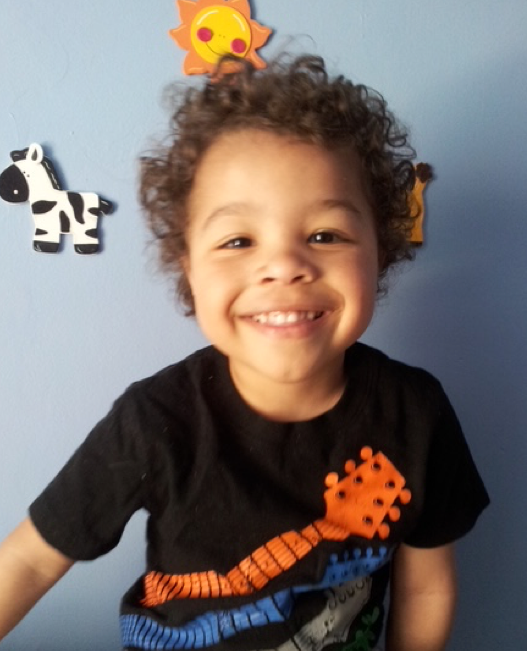
Brain Function
Understand and identify the areas of the brain that may be disorganized.
Physical Program
A comprehensive neurological program that uses all aspects of the child’s physical abilities to promote brain growth.
Questions
Frequent opportunity to ask questions is the hallmark of this course.
Physiological Program
A comprehensive overview of factors that affect children’s health: food, water, air, supplements, and medications. The importance of oxygen enrichment to the brain.
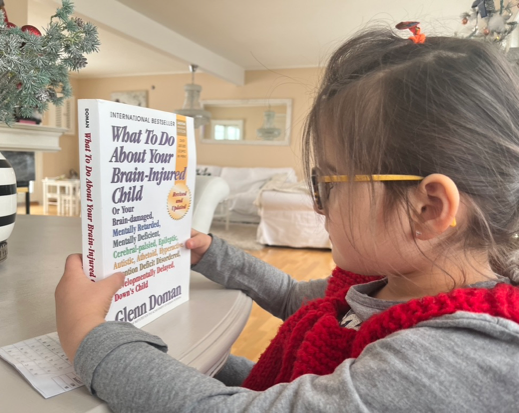
The Interim Consultation
After the course ends, you continue. to receive staff support for up to 8 weeks to support the implementation of the program and progress of your child.
Lecture Notebook & materials
Guide for progress at home for 6–12 months.
Questions
Frequent opportunity to ask questions is the hallmark of this course.
To Get Real Results - Parents Are The Answer
Hope Reinforced by Real Achievements

“This course empowered me with the tools to handle not only my child’s problem but to help him grow and learn to read. This course has truly helped me take responsibility in this area and has showed me the infinite possibilities available to my family and my child.”
Mother, USA

“I learned that armed with the right information, determination, and the love I have for my child, anything is possible. I had the latter; all I needed was The Institutes.”
Mother, USA

“My child can be fixed! With the knowledge, dedication, hard work, and love, my son has the chance to reach his full potential. I finally feel someone is listening. I’m so glad I found The Institutes on the Internet.”
Mother, USA

“I didn’t dream I’d be exposed to this much information in five days. I am so pleased that I came. Our daughter’s condition has changed our lives. This course surely will change it again.”
Father, USA

“Fantastic! My spirits are lifted. I know now exactly what to do. I am elated, breathing huge sighs of relief because I feel well prepared to teach my daughter.”
Mother, USA

“Fantastic! My spirits are lifted. I know now exactly what to do. I am elated, breathing huge sighs of relief because I feel well prepared to teach my daughter.”
Mother, USA

“The instructors were topnotch! The subject is of supreme importance. The course content was complete but not overwhelming. The materials, videos, handouts, and course outline were the best and most well organized that I have ever seen.”
Mother, USA

“The staff was wonderful. They were knowledgeable, kind, helpful and, most of all, quietly confident that they can help your child.”
Father, USA

“Not only do these professionals have explanations and treatment, but they care and it shows. They care for every child who has come and every child that will come in the future, and we (parents) all felt that.”
Mother, USA

“This is the first time I’ve attended a training institute where I actually felt the staff loved and believed in what they were doing and teaching. It was a pleasure to hear over and over again that a brain-injured child can be helped and had potential.”
Father, Denmark

“I did not expect to be on the edge of my seat every minute of every lecture. I did not expect to get excited and gain this amount of knowledge.”
Mother, USA

“This course was more than I expected, as it introduced new ideas, dispelled old myths, and provided understanding and new found hope.”
Father, USA

“It was everything I expected and a thousand times more. It is so wonderful to finally understand why the things I have been told to do don’t work and simply don’t make sense. It is wonderful to listen to so many people talk about the joy they have in helping our kids instead of slamming the door on them.”
Mother, Australia

“I saw The Institutes as hope, but I never expected the knowledge I received. I am armed to march into battle. I’m sure I’ll need reinforcements along the way, but I’m ready for whatever it brings. I see the light!”
Mother, USA

“It surpassed all of my expectations. I have abundant practical information and understanding of methods I can use to help my son.” Mother, USA“ I did not expect to be on the edge of my seat every minute of every lecture. I did not expect to get excited and gain this amount of knowledge.”
Mother, USA

“This remarkable program and the proven philosophies that you revealed will change our whole family’s way of life. After some rest and discussion we will begin to implement a very doable and enjoyable program.”
Mother, USA
Why the Program Works
More Than 70 Years of Search and Discovery in Child Brain Development
Since 1955, The Institutes for the Achievement of Human Potential has taught parents about brain growth and development.
Brain growth is a dynamic process. It is a process that can be stopped or slowed by brain-injury but most importantly it is a process that can be speeded.
The brain grows by use.
Stimulation and opportunity create brain growth.
Many medications suppress brain function.

Ready to Take the First Step?
Tell us about your situation. Talk to our staff so you can decide if our program is right for your child.
Call us Now at 800-207-2948 to speak with one of our Staff!
Or complete the form below and one of our staff will reach out to discuss your situation and help you decide if our program is right for your child.
Frequently Asked Questions
Questions Parents Commonly Ask
What makes you different?
A real diagnosis
When children diagnosed as “developmentally delayed” come to us they have often been almost everywhere. Although they have had many assessments and tests, they seldom arrive here with a real diagnosis. Instead, the child has been given a symptomatic label. Symptomatic labels do not tell parents where the problem is, nor do they articulate how much of a problem there is, or how widespread it may be. This is what a real diagnosis must do to be a diagnosis. These labels do not offer anything but confusion, fear and almost always a very poor prognosis. After a careful and extensive evaluation, our children get a real diagnosis which tells parents what area of the brain is involved, what is the degree of injury and what is the extent of injury.
We Focus On The Brain
The danger of symptomatic labels is that they will lead to treating those symptoms rather than the underlying cause – injury to the brain. We treat the brain, not the symptoms. Since the brain runs everything there are many ways to treat the brain through stimulation and opportunity. The brain grows by use, just like the biceps so our program is all about growing the brain.
We do not use drugs to treat the brain
Many children arrive here heavily medicated. They may be taking anti-convulsants, amphetamines, tranquilizers, or anti-psychotics. These medications can have a suppressive effect on the central nervous system. A sedated child is not a healthy child. Sleep, appetite, digestion, and energy can all be negatively affected by these medications. We decrease and remove these medications very carefully to ensure that our children can benefit fully from the stimulation and opportunity that the program provides.
We believe in Mothers and Fathers
We know that when it comes to children – parents are not the problem, they are always the answer. We know parents from all over the world, from every country and corner of the world. Regardless of culture or custom, when it comes to children, parents are the same. Parents know their kids better than anyone else and parents love their kids more than anyone else. We believe parents are good for their kids and kids are good for their parents. We believe that when parents understand how the brain grows and why it grows the way it does, they are the best therapists their child will ever have. Children have the very best chance to develop and get better when they are at home with their mothers and fathers and their sisters and brothers.
We did not set out 70 years ago to be different. We set out to make our children better. We had to forge a new path and even create a new field of child brain development to do that.
|
Our course is our course |
|
Our course is original in every detail. It is not a copy of anyone else’s course or derived from the work of someone else. It is ours lock, stock and barrel. The Institutes has been teaching parents, and those parents have been getting results with their children for 70 years. Yes, there are many others over these seven decades who have pretended to be doing our work. It might be a compliment if they were just imitating shoes. But hurt children are not shoes. Teaching our parents and helping our kids requires real commitment and deep experience. It also requires honesty, dedication, and courage. We believe the imitators are harmful. |
No one has ever said that my child is brain-injured. How do I know whether this course is for my child?
You may have been given one of the 350 symptomatic labels often used for brain-injured children (such as developmental delay, autism, cerebral palsy, Down syndrome, attention deficit disorder, learning problems, persistent vegetative state, or epilepsy). These labels all indicate that there is a problem in the central nervous system.
I have so many questions. Will there be time to ask my questions?
Our parents arrive with a thousand questions. Hundreds of those questions are answered in the lectures that are presented each day, but aside from these presentations, parents can ask questions every 50 minutes during the course. The entire clinical staff is available to make sure that parents have the maximum opportunity to get their questions answered. As the course progresses, parents can request break-out sessions to talk with staff in the breaks. At the beginning and the end of each day, parents are encouraged to come early or stay after class if they have more questions. Our goal is to answer every question for which we have an answer before the course ends.
Will I go home with a program for my child?
Yes. You will go home with:
- A program that addresses your child’s health and nutritional needs
- A sensory program that provides the appropriate stimulation for your child’s vision, auditory, and tactile pathways
- A motor program that provides the appropriate opportunity to crawl, creep, walk, or run, depending on your child’s present mobility level
- An intellectual program that starts your child on a clear path to intellectual excellence
- A unified plan that embraces the whole family and includes everyone
Do both parents have to take the course together?
Yes and no. No, both parents are not required to come together. Yes, it is far better when both mother and father can attend together. It is a life-changing experience, parents often say that they are very happy they made the decision to come at the same time. Getting the program started is easier when both parents understand and can support each other immediately. Another significant advantage: When one parent enrolls that enrollment tuition includes the other parent automatically.
Seven days is a long time to be away from my child. Do I really need seven days?
Yes, it is a long time to be away from your child. Yes, you really need all seven days of the course. In fact, those seven days are not enough to teach everything we wish to teach. By the end of the course our parents understand that very well. At the conclusion of the course, you will understand your child much better. You will be looking at your child with bigger eyes. You will have a new respect for your child and your child’s potential. You will know what your child really needs. You will have a real battle plan that shows you exactly what you need to do each day.
How do I know this course is what I want?
We understand. Our parents have been everywhere seeking answers. Often precious funds and resources have been used with not much to show for it. For this reason, if parents enroll and at the end of the first day of our course, they do not feel it is what they want, we will refund the full enrollment.
“The best thing about this course is the support. After seeing so many doctors and having so many opinions and non-answers you truly do feel alone in the world of brain-injured children. This course not only gives you tangible actions, but you also receive the support of an entire team that is invested in your child.”
Mother, Florida
About the Community & Support
You’ll Never Be Alone Again
Course graduates receive guidance from experienced child brain developmentalists and phone check-ins postcourse. They are eligible for an appointment at The Institutes and participation in the Intensive Treatment Program in the future.
Every child deserves a fighting chance to be well.
For over 70 years thousands of parents from more than 100 nations have proven that their hurt children can get better when they understand why the brain grows as it does and how to enhance that growth. This is the foundation for a pathway to wellness.
